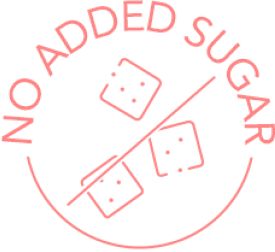Phases of Menstrual Cycle

Waking up with low energy one day, but feeling like you can take on the world on another? Well, it's not just you and no, you're not just being "moody".
Your menstrual cycle is more than just about the 7 days of your period! Everyday your body has changes happening from within, which can affect your mood, energy levels, and appearance too.
During the period of puberty to menopause, a woman’s body goes through many changes every month. This is to prepare for the ability to be pregnant. If you don't get pregnant, you experience menstrual period. This cycle is known as the menstrual cycle.
The menstrual cycle is a series of events controlled by hormones such as estrogen, progesterone, luteinizing hormone, follicular-stimulating hormone and testosterone. Fluctuations in these hormones lead to next phase of the cycle.
The average cycle is 28 days long; however, a cycle can range in length from 21 days to about 35 days.
This cycle starts from the first day of your period and ends on the first day of your next period.
Every woman's menstrual cycle is different and may change with age.
The menstrual cycle consists of four phases. These are:
- menstrual phase
- follicular phase
- ovulatory phase
- luteal phase
Menstrual Phase
This phase, which typically lasts from day one to day five, is the time when the thickened lining of the uterus is actually shed out if pregnancy has not occurred. Most women bleed for three to five days, but a period lasting only two days to as many as seven days is still considered normal.
you may experience symptoms like:
- fatigue
- mood swings
- cramps
- tender breasts
- bloating
- lower back pain

-
Follicular Phase
This phase typically takes place from days six to fourteen. During this time, the level of the hormones estrogen and progesterone rise, which leads to thickening of uterine walls. The pituitary gland releases follicle-stimulating hormones that encourages production of ovarian follicles. During days 10 to 14, one of the developing follicles will form a fully mature egg.
Ovulation Phase
This phase occurs roughly at about day 14 in a 28-day menstrual cycle but can differ from woman to woman. A sudden increase in another hormone—luteinizing hormone causes the ovary to release its egg. The mature egg lasts up to 24 hours.
Luteal Phase
This phase occurs from day15th to 28 . If the egg becomes fertilized and attaches to the uterine wall, the woman becomes pregnant. If pregnancy does not occur, estrogen and progesterone levels drop and the thickened lining of the uterus is shed during the menstrual period.
In addition, you may experience premenstrual symptoms (PMS) like: - bloating
- fatigue
- mood swings
- headache
- acne
- mood swings
- constipation
- tender breasts
- insomnia

You are the best judge of your own body so ensure you listen to it no matter what phase of your cycle you are in.






